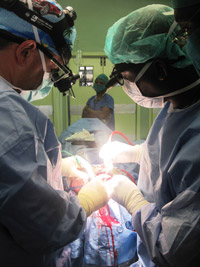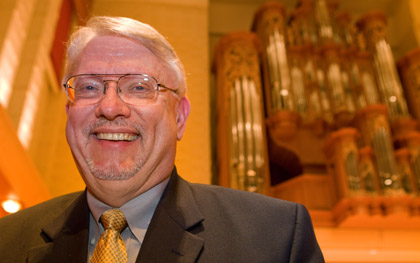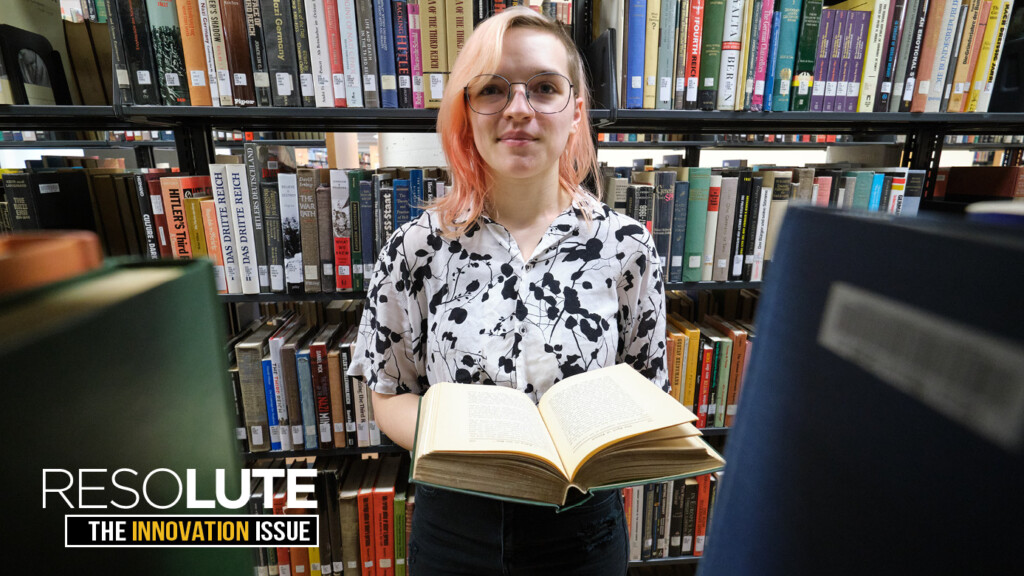Page 340 • (12,694 results in 0.045 seconds)
-

January 3, 2013 Editor’s Note: Dr. Michael Haglund gave the Distinguished Alumnus Lecture during the Homecoming 2013 festivities in October. Neurosurgeon, alum follows his heart and passion to Africa By Heather Perry ’13 May 18, 1980 is the day Mt. St. Helens blew its top, but Dr. Michael Haglund remembers it as the day he graduated from Pacific Lutheran University. More than three decades and multiple degrees later, Haglund is now a professor of neurosurgery, neurobiology, and global health
-
“Indigenous Environmentalism as Spiritual Responsibility: Journeys of Activism and Healing with Saint Kateri Tekakwitha” Dr. Michelle M. Jacob, PhD, is a Professor of Indigenous Studies and Director of the Sapsik’ʷałá (Teacher) Education Program in the Department of Education Studies at University of Oregon. 7:00 pm | Tuesday, Feb 20 | Scandinavian Cultural Center Free and Open to the Public The PLU Religion Department welcomes you to the Paul O. Ingram lecture at 7p.m. Tuesday, February 20th
-
up after graduation, an activist philanthropist and an upstanding community member, Kim checks all the “American” boxes. Except for one: actually being a legal citizen. Kim is one of the approximately 800,000 Deferred Action for Childhood Arrivals recipients in the United States. DACA grants temporary visas to young people who arrived in the United States with their parents as undocumented immigrants. While Kim might not be an American legally, he is certainly a Lute. Kim graduated in 2015 with
-
integrating practical performance psychology applications in a variety of professional settings. Scope of professional capabilities, education and training and how those variables impact ethical professional practice will be explored. (4) KINS 591 : Independent Study To provide individual graduate students with advanced study not available in the regular curriculum. The title will be listed on the student term-based record as "IS:" followed by the specific title designated by the student. Prerequisite
-
publishing. One of only a few such programs in the country, PLU’s distinctive interdisciplinary curriculum in Publishing and Printing Arts (PPA) is highly respected by employers. It combines pre-professional skills and experience, with the solid foundation of a liberal arts education. PPA is a six-course minor that gives students with talent and interest in writing, graphic design, communication or business a head start into the world of publishing and a broad variety of related professions. The
-
assess the old. Coursework includes analysis of crime, deviance, family and gender issues, race/ethnicity, social class, social problems and inequality. In addition, sociology provides training in a range of research techniques that can be applied to many areas of social life and policy. The Sociology curriculum at PLU is cumulative, such that the skills developed in lower-division courses set the groundwork for the skills to be developed in upper-division classes. We advise students to select their
-
and security procedures Personal safety and crime prevention techniques Provide formal instruction about crime prevention through a training seminar or training video presentation that includes these topics: How keeping the store clean, neat, and uncluttered discourages potential robbers Why the cash register should be kept in plain view from outside the store, if your store layout allows. Reasons for operating your business with only a minimum number of cash registers at night. Reasons for
-

-country flights ahead. The 1970s at PLU were a time of change, a theme I later realized would repeat itself regularly. The 4-1-4 calendar was in its first iteration, with the January term called the Interim. Students were required to take two interim courses in their four years; faculty was encouraged to teach innovative courses outside the regular curriculum and even outside their specific disciplines. President William O. Rieke came to PLU in 1975 and soon after capital construction projects resumed
-

flights ahead. The 1970s at PLU were a time of change, a theme I later realized would repeat itself regularly. The 4-1-4 calendar was in its first iteration, with the January term called the Interim. Students were required to take two interim courses in their four years; faculty was encouraged to teach innovative courses outside the regular curriculum and even outside their specific disciplines. President William O. Rieke came to PLU in 1975 and soon after capital construction projects resumed
-

course through PLU’s curriculum that allows them to pursue their interests and prepare for their future. Read more stories from the innovation-themed issue of ResoLute Magazine. Read Previous LUTES ANSWER: What does it mean to innovate wherever you are? Read Next Renzhi Cao innovates in the classroom COMMENTS*Note: All comments are moderated If the comments don't appear for you, you might have ad blocker enabled or are currently browsing in a "private" window. LATEST POSTS PLU College of Liberal
Do you have any feedback for us? If so, feel free to use our Feedback Form.


